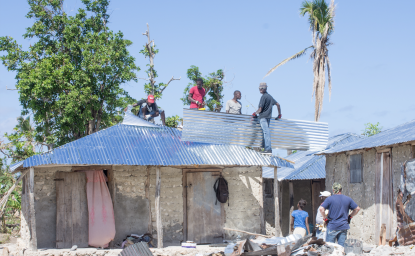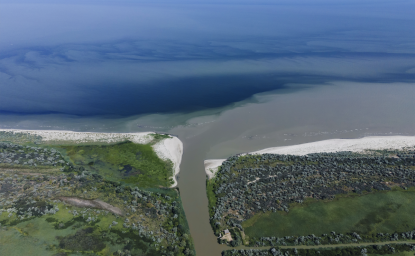Panel Will Review Environmental Threats to International Security
Greenwire interviews ECSP Director Geoffrey Dabelko
Greenwire interviews ECSP Director Geoffrey Dabelko
Reprinted from Greenwire with permission from Environment & Energy
Publishing, LLC. www.eenews.net. 202/628-6500
By Alex Kaplun, Greenwire reporter
A U.N. panel charged with identifying ways to deal with international security threats could consider several environmental issues in its policymaking, including the effects of population growth, global climate change and water shortages.
The 16-member group, which is made up largely of officials from various international organizations, is scheduled to submit a full report to the United Nations by December.
The panel was formed last year by U.N. Secretary General Kofi Annan in the wake of debate over the Iraq war and reconstruction. At the time, Annan said the group, known as the High-Level Panel on Threats, Challenges and Change, was in keeping with the United Nations' mandate "to take effective collective measures for the prevention and removal of threats to the peace."
Much of the work to date has been performed by the United Nations Foundation, an organization founded by U.S. media mogul Ted Turner and charged with supporting the work of the United Nations. Among the findings the foundation will present to the United Nations are that three key issues -- unchecked population growth, water shortages and human-induced change to the climate -- are driving security threats throughout much of the world.
According to three papers drafted by the foundation on environmental threats to international security, resource shortages and environmental problems alone will by not necessarily lead to violent conflicts. But they could exacerbate disputes between competing groups and cripple governments that lack the will or resources to deal with environmental strain.
For example, "Because climate change happens gradually, global warming is unlikely to be the primary cause of any particular armed conflict, nor will its contribution to conflict be particularly visible," states a paper by Nigel Purvis, a former deputy assistant secretary at the State Department, and Joshua Busby, a research fellow at the Brookings Institution.
But, the paper warns, "Conditions of drought, disease, and economic stagnation may reach critical levels or tipping points beyond which state failure becomes more likely."
Purvis and Busby recommend that the United Nations place greater emphasis on climate change in some of its disaster relief and prevention programs and work with "weak states" to prepare them for possible negative effects of climate change.
Hilary French and Michael Renner, both of the WorldWatch Institute, argue in another paper that the United Nations should play a greater role in the creation and ratification of international environmental treaties and provide additional funding for environmental initiatives.
Yet despite the concerns outlined in the papers, the U.N. panel will be forced to weigh environmental concerns against other pressing problems such as terrorism and the proliferation of weapons of mass destruction.
"With anything in the U.N., there's a chance that it doesn't achieve critical mass," said Geoffrey Dabelko, director of the Environmental Change & Security Project and co-author of the paper on water shortages. "But it's not a zero-sum game between responding to force and addressing these larger human security issues."

The Environmental Change and Security Program (ECSP) explores the connections between environmental change, health, and population dynamics and their links to conflict, human insecurity, and foreign policy. Read more



